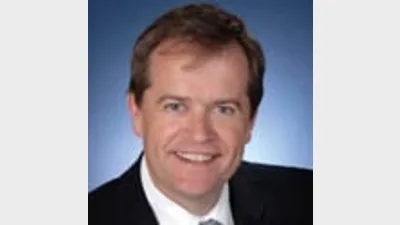Accountants worried about trust income tax reform



Accounting firm Crowe Horwath has expressed concerns about the Government’s handling of the trust income taxation reform, claiming it is not allowing enough time for consultation with the industry.
The Government had recently released an exposure draft legislation which would remove capital gains and franked dividends derived by trusts from current taxing arrangements and subject them to a different taxing regime.
While releasing the draft legislation, the Assistant Treasurer and Minister for Financial Services and Superannuation, Bill Shorten (pictured), explained the early release of the legislation was “to ensure that interested stakeholders have the maximum opportunity to comment on the core changes proposed in this legislation”.
However, Crowe Horwath national tax director, Tristan Webb, said contemplating complex new legislation that relates to the current financial year was not appropriate.
“The draft explanatory memorandum is filled with statements that the final legislation will clarify matters, but this is not good enough for taxpayers who need certainty for this financial year,” he said.
“The consultation periods have been too short and the Government now risks making an already complex situation unworkable,” Webb added.
Webb said the one-year amnesty provided by the Australian Taxation Office in March last year for all taxpayers utilising trusts was an effective way of solving this problem.
“The easy way to fix the current problems is to extend the amnesty for another two years,” Webb said. “This will provide the time needed for further consultation and allow the Government to provide for a complete overhaul of the existing rules.”
Recommended for you
The Reserve Bank of Australia (RBA) has lowered rates to a level not seen since mid-2023.
Financial Services Minister Stephen Jones has shared further details on the second tranche of the Delivering Better Financial Outcomes reforms including modernising best interests duty and reforming Statements of Advice.
The Federal Court has found a company director guilty of operating unregistered managed investment schemes and carrying on a financial services business without holding an AFSL.
The Governance Institute has said ASIC’s governance arrangements are no longer “fit for purpose” in a time when financial markets are quickly innovating and cyber crime becomes a threat.










